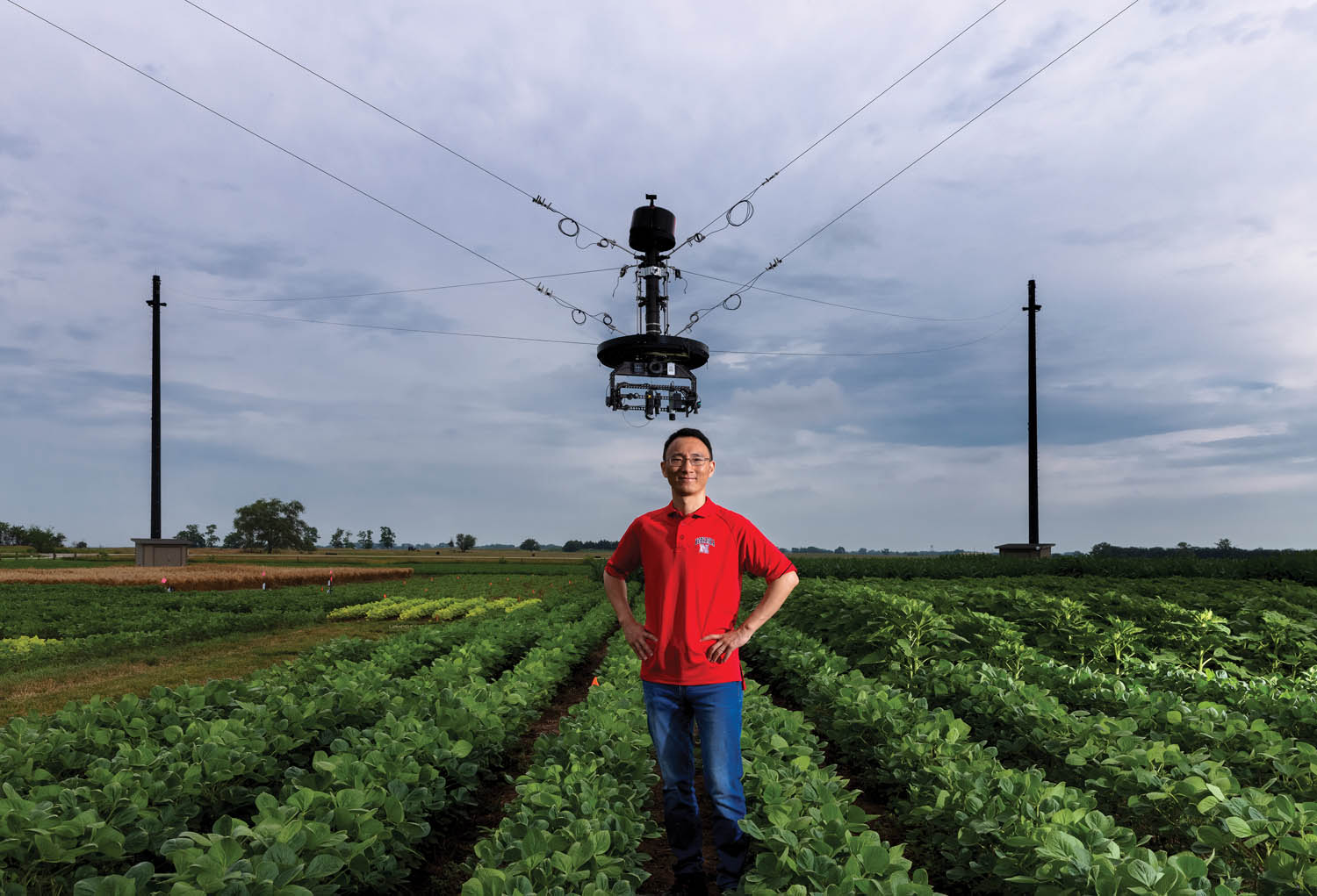Historically, plant breeders have chosen varieties to propagate by manually measuring and observing differences between plants. Today, technology can identify minute variations better and faster.
These advances allow scientists to trace desirable traits back to specific genes, opening new avenues to improving plant health and increasing yields.
But high-tech phenotyping, as it’s known, is so new and generates so much data that science is still getting its bearings. Nebraska researchers are teaming with Texas A&M University and Mississippi State University to standardize the process. Ultimately, this work could pave the way for a nationwide phenotyping network to harness this technology’s full potential.
“Phenotyping is an important technology, but it’s a bottleneck for our next breakthroughs in agricultural productivity,” said Yufeng Ge, associate professor of biological systems engineering, who co-leads the overall project. “Phenotyping is where genotyping was 25 or 30 years ago.”
This comprehensive project encompasses everything from data collection to analyzing and sharing data.
Nebraska’s advanced phenotyping technologies include drones, robots, high-tech cameras and laser scanners to detect important variations in plants, such as nitrogen content and leaf temperature. But the technology is too expensive for use beyond research settings, so project engineers are developing affordable technologies for widespread use.
Inconsistent protocols, technologies and algorithms make comparing and interpreting phenotyping results difficult. This project is creating nationwide standards for collecting, cataloguing and analyzing data that will allow researchers to use data captured elsewhere.
It’s an impressive, ambitious and very important project that could have a huge impact on how new crop lines are developed.
Archie Clutter
To teach the next generation of plant scientists how to organize, understand and use the extensive information gathered by high-tech phenotyping, Ge’s team is also creating a comprehensive curriculum.
Ge credits Nebraska’s investments in state-of-the-art technologies, including a phenotyping greenhouse, for putting the state at the forefront of the next advance in agricultural production and, ultimately, improving global food security.
“It’s an impressive, ambitious and very important project that could have a huge impact on how new crop lines are developed,” said Archie Clutter, dean and director of Nebraska’s Agricultural Research Division.
A three-year, $3 million grant from the U.S. Department of Agriculture’s National Institute of Food and Agriculture funds this project.
+ Additional content for Advancing High-Tech Plant Phenotyping
Nebraska news release: Husker-led project to advance, standardize field of phenotyping

